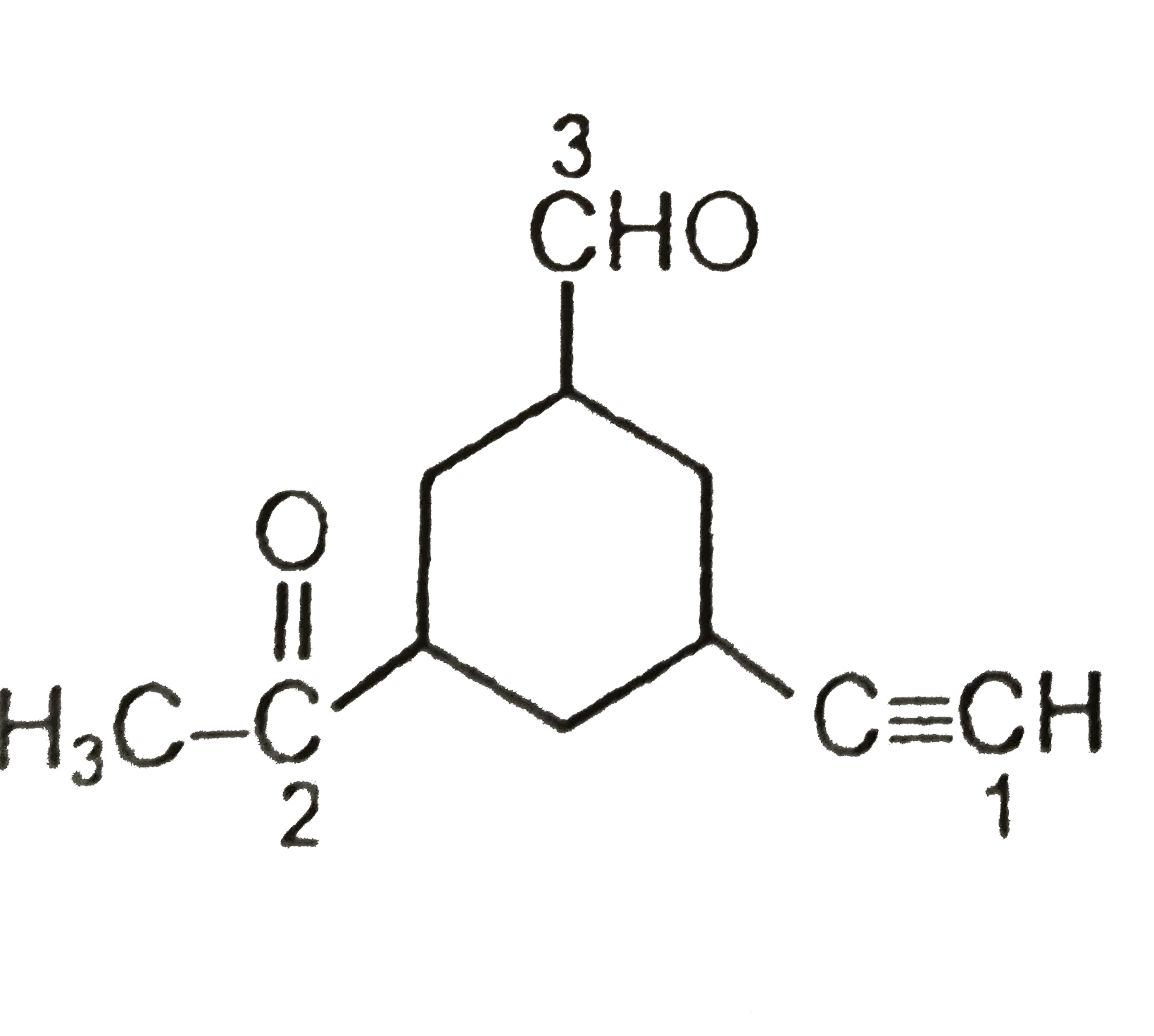Assertion: Both grignard reagent and dialkyl cadmium react with acid chlorides to form tert-alcohols.
Reason: Grignard reagents are as reactive as dialkyl cadmium.
a. If both assertion and Reason are true and the Reason is the correct explanation of the assertion.
b. If both assertion and Reason are true but the reason is not the correct explanation of the assertion
c. If assertion is true but reason is false
d. If both assertion and reason are false.
The correct Answer is:D
To solve the question, we need to analyze the assertion and reason provided:
Assertion: Both Grignard reagent and dialkyl cadmium react with acid chlorides to form tert-alcohols.
Reason: Grignard reagents are as reactive as dialkyl cadmium.
1. Understanding Grignard Reagents:
- Grignard reagents (R-MgX) are highly reactive organomagnesium compounds. They act as nucleophiles and can react with electrophiles, such as acid chlorides.
2. Reaction of Grignard Reagents with Acid Chlorides:
- When a Grignard reagent reacts with an acid chloride, the nucleophile (R-) attacks the electrophilic carbon of the carbonyl group (C=O) in the acid chloride.
- This results in the formation of a tetrahedral intermediate, which then leads to the formation of a ketone after the leaving group (Cl) is expelled.
- A second equivalent of the Grignard reagent can then attack the ketone, leading to the formation of a tertiary alcohol after workup (hydrolysis).
3. Understanding Dialkyl Cadmium:
- Dialkyl cadmium (R2Cd) is less reactive compared to Grignard reagents. It is formed by the reaction of two equivalents of Grignard reagents with cadmium chloride.
4. Reaction of Dialkyl Cadmium with Acid Chlorides:
- When dialkyl cadmium reacts with acid chlorides, it also acts as a nucleophile. However, due to its lower reactivity, it typically forms a ketone rather than a tertiary alcohol.
- The reaction proceeds similarly to that of Grignard reagents, but the final product is a ketone, not a tertiary alcohol.
5. Evaluating the Assertion and Reason:
- The assertion states that both Grignard reagents and dialkyl cadmium form tertiary alcohols when reacting with acid chlorides. This is false because only Grignard reagents do so; dialkyl cadmium forms ketones.
- The reason states that Grignard reagents are as reactive as dialkyl cadmium. This is also false because Grignard reagents are significantly more reactive than dialkyl cadmium.
Conclusion:
- Both the assertion and reason are false. Therefore, the correct option is D: Both assertion and reason are false.
- Grignard reagents (R-MgX) are highly reactive organomagnesium compounds. They act as nucleophiles and can react with electrophiles, such as acid chlorides.
- When a Grignard reagent reacts with an acid chloride, the nucleophile (R-) attacks the electrophilic carbon of the carbonyl group (C=O) in the acid chloride.
- This results in the formation of a tetrahedral intermediate, which then leads to the formation of a ketone after the leaving group (Cl) is expelled.
- A second equivalent of the Grignard reagent can then attack the ketone, leading to the formation of a tertiary alcohol after workup (hydrolysis).
- Dialkyl cadmium (R2Cd) is less reactive compared to Grignard reagents. It is formed by the reaction of two equivalents of Grignard reagents with cadmium chloride.
- When dialkyl cadmium reacts with acid chlorides, it also acts as a nucleophile. However, due to its lower reactivity, it typically forms a ketone rather than a tertiary alcohol.
- The reaction proceeds similarly to that of Grignard reagents, but the final product is a ketone, not a tertiary alcohol.
- The assertion states that both Grignard reagents and dialkyl cadmium form tertiary alcohols when reacting with acid chlorides. This is false because only Grignard reagents do so; dialkyl cadmium forms ketones.
- The reason states that Grignard reagents are as reactive as dialkyl cadmium. This is also false because Grignard reagents are significantly more reactive than dialkyl cadmium.
- Both the assertion and reason are false. Therefore, the correct option is D: Both assertion and reason are false.
Similar Questions
Alcohols react with Grignard reagent to form
View SolutionGrignard's reagents give alkanes by reaction with alcohols.
View SolutionDialkyl cadmium is used to prepare ketones from acid chlorides and not from Grignard reagents. Assign reason.
View SolutionOn which position grignard reagent will react first in

View SolutionThe Grignard reagent, on reaction with acetone, forms :
View SolutionAlcohols react with Grignard regent to form
View SolutionStarting with Grignard's reagent, how will you prepare propanoic acid?
View SolutionWhich compounds is used to prepare 1∘ alcohol from Grignard reagent.
View SolutionWhy Grignard reagents are not used in place of dialkyl cadmium during the preparation of ketones from acid chlorides ?
View SolutionWhy Grignard reagents are not used in place of dialkyl cadmium during the preparation of ketones from acid chlorides ?
View Solution
